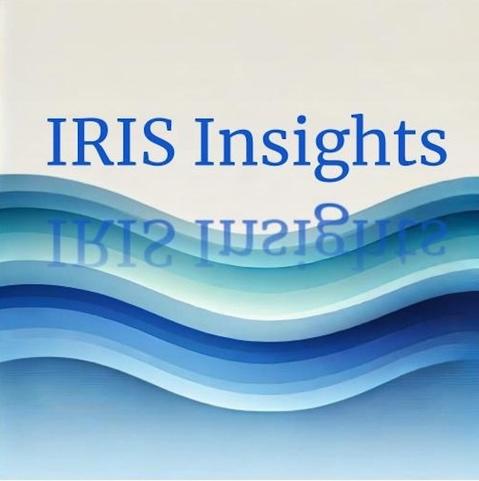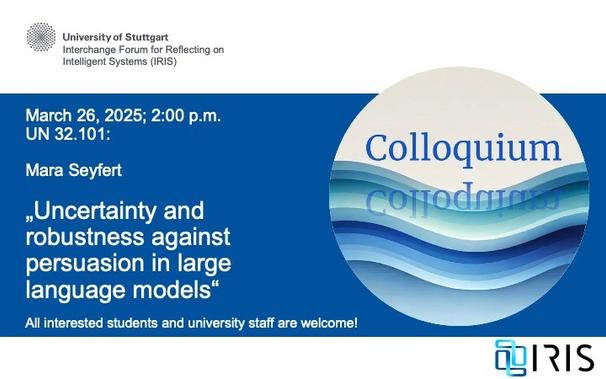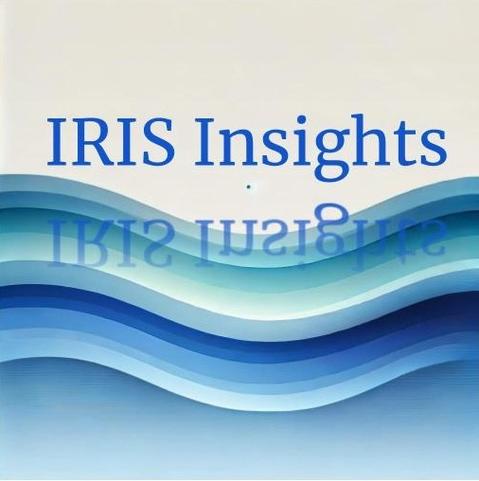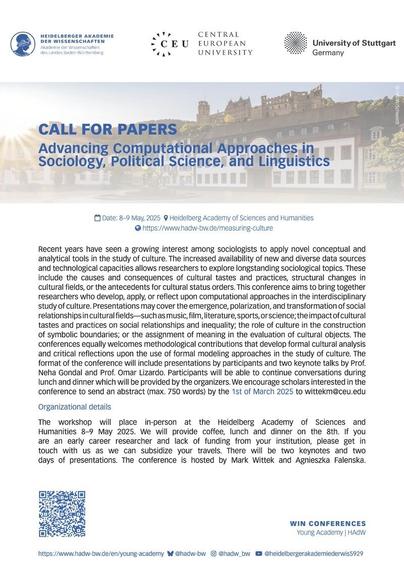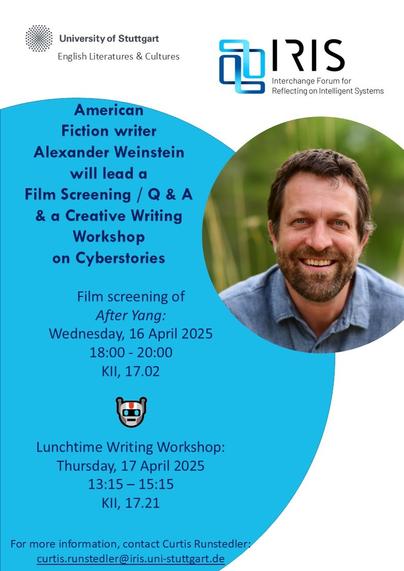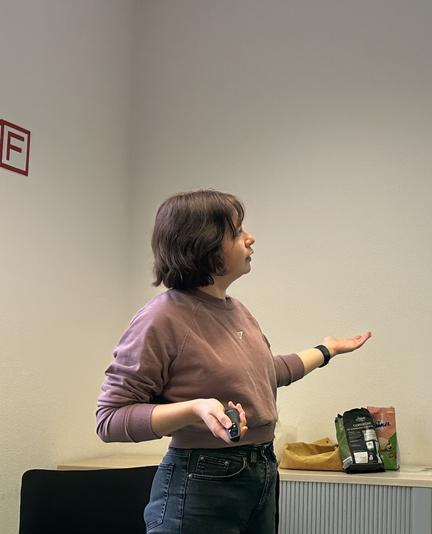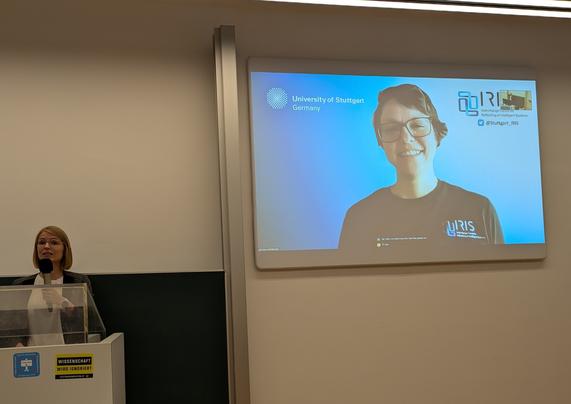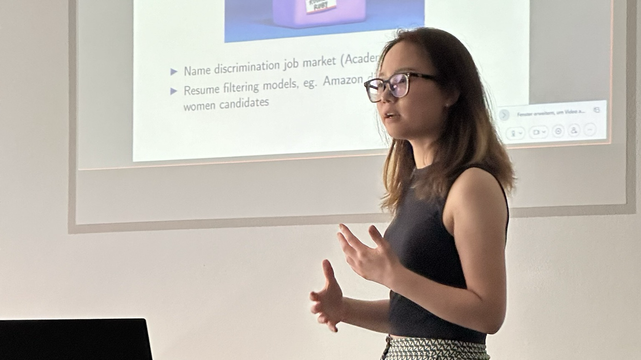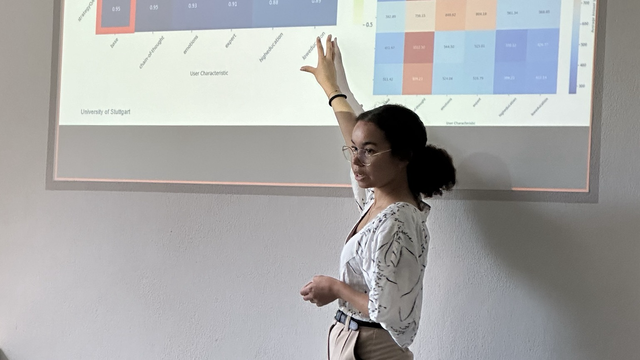IRIS Insights I Nico Formanek: Are hyperparameters vibes?
April 24, 2025, 2:00 p.m. (CEST)
Our second IRIS Insights talk will take place with Nico Formanek.
🟦
This talk will discuss the role of hyperparameters in optimization methods for model selection (currently often called ML) from a philosophy of science point of view. Special consideration is given to the question of whether there can be principled ways to fix hyperparameters in a maximally agnostic setting.
🟦
This is a WebEx talk to which everyone who is interested is cordially invited. It will take place in English. Our IRIS speaker, Jun.-Prof. Dr. Maria Wirzberger, will moderate it. Following Nico Formanek's presentation, there will be an opportunity to ask questions. We look forward to active participation.
🟦
Please join this Webex talk using the following link:
https://lnkd.in/eJNiUQKV
🟦
#Hyperparameters #ModelSelection #Optimization #MLMethods #PhilosophyOfScience #ScientificMethod #AgnosticLearning #MachineLearning #InterdisciplinaryResearch #AIandPhilosophy #EthicsInAI #ResponsibleAI #AITheory #WebTalk #OnlineLecture #ResearchTalk #ScienceEvents #OpenInvitation #AICommunity #LinkedInScience #TechPhilosophy #AIConversations
The Interchange Forum for Reflecting on Intelligent Systems (IRIS) aims to stimulate, develop and promote critical reflection on intelligent systems and their impact on society through research, public engagement, teaching and collaboration.
Milan Obaidi, Robin Bergh, Simon Ozer and our IRIS research group leader Cornelia Sindermann have published an article in the journal European Review of Social Psychology.
ABSTRACT
The global threat of violent extremism (VE) has intensified in recent years, evidenced by a significant increase in violent incidents. Despite numerous theoretical and empirical explanations across disciplines, a lack of cross-fertilisation between these research domains has hindered the development of a comprehensive understanding of VE. To bridge this gap, this review integrates diverse lines of research into a comprehensive psychological model of VE, synthesising objective situations, subjective appraisals, and key individual psychological factors contributing to VE inclinations. We aim to develop a framework that more precisely demonstrates how these variables fit together, highlighting the added value of integration over piecemeal investigations. We specifically advocate for a multilevel approach that incorporates predictors from various levels of analysis to provide detailed mechanisms for how these variables relate to and complement one another. We further illuminate a multitude of mediation and moderation effects, some already tested empirically, while others await future research.
Full article: https://doi.org/10.1080/10463283.2025.2478735
We cordially invite all interested parties at the Universität Stuttgart to our IRIS Colloquium on March 26, at 2 p.m., in Room 101 at Universitätsstr. 32.
🟦
Mara Seyfert will give her lecture, „Uncertainty and robustness against persuasion in large language models.“
🟦
Today's large language models (LLMs) excel at providing convincing answers across a broad spectrum of inquiries, with their conversational capabilities enabling them to closely align with users' needs. However, this adaptability is beneficial only to the extent as models remain robust to adopting wrong statements from user inputs.
🟦
Recent research demonstrates that even advanced models like GPT-4 can shift from initially correct answers to incorrect ones during multi-turn conversations solely due to user input. In my talk, I will present my research exploring how uncertainty in LLMs can provide insights into their robustness against persuasion while highlighting the specific challenges of quantifying uncertainty in these models.
🟦
The lecture is held in English. Registration is not necessary.
🟦
#LargeLanguageModels #AI #GPT #GPT4 #robustnessagainstpersuasion #AIResearch #MachineLearning #LLMs #ArtificialIntelligence #TechTalk #RobustAI #DataScience #AIethics #Innovation
Why is the integration of robots into the construction industry considered crucial? How can human-robot collaboration (HRC) be enhanced in the construction industry? What new perspectives does feminist technoscience offer on human-robot collaboration in construction and prefabrication?
Gili Ron, Thomas Wortmann, Cordula Kropp, and Achim Menges (IRIS members) published an article about "Human-Robot Reconfigurations: Advancing Feminist Technoscience Perspectives for Human-Robot-Collaboration in Architecture and Construction" in M. Kanaani (Ed.), The Routledge Companion to Smart Design Thinking in Architecture & Urbanism Fora Sustainable, Living Planet (1st edition, pp. 669–679). Routledge, Taylor & Francis Group.
Abstract
Integrating robots in the construction industry is an essential requirement for urgently needed improvements in productivity and sustainability. This integration requires new perspectives on human-robot collaboration (HRC) to retain skilled staff and support skills and decision-making while considering conditions on-site. This chapter reflects on HRC for prefabrication and construction from the perspective of feminist technoscience, a transdisciplinary field offering distinct ways of thinking about society, technologies, bodies, power, and the environment. Specifically, the chapter proposes new perspectives on agents, agency, and collaboration. Applied to HRC, these perspectives can for example imply (1) situated interfaces supporting multi-agent collaborations of skilled workers and robots, (2) human training of robots on how to adapt to changing conditions and uncertainties on-site enabled by machine learning, and (3) collaborative prefabrication and construction processes supporting on-the-fly design decisions. Such approaches reconsider “agency” as a collaborative unit of human and non-human agents and foster trust and sensible task distribution for improved efficiency in fabrication.
Read more here: https://lnkd.in/eda6Qxw7
On February 27, 2025, 2:00 p.m. - 3:00 p.m., we are launching our new series IRIS Insights. Prof. Zamira Daw is our first guest. Everyone interested is cordially invited to this WebEx talk.
✈️
Human-AI Teaming in Cockpit Systems (HAITICS)
✈️
As artificial intelligence (AI) advances, its integration into safety-critical applications presents both opportunities for improving efficiency but also challenges in ensuring safety. In cockpit systems, understanding pilot interaction with AI-based technologies is crucial for assessing overall flight safety.
✈️
This research explores human-AI interaction in aviation through interdisciplinary collaboration between the Institute of Aircraft Systems and IRIS, combining expertise in aviation systems, AI, and human factors. Traditionally, human-machine systems are developed by defining system behavior and training pilots, who remain responsible for monitoring, error detection, and overriding automation when needed. AI disrupts this model by: 1) Introducing higher levels of automation, increasing operational complexity and making it harder for pilots to detect system failures; 2) Exhibiting unpredictable behaviors, such as overconfidence and hallucinations, which are difficult to identify.
✈️
This research examines key factors in pilot-AI collaboration, including workload, trust, explainability, and de-skilling. They use flight simulator experiments and plan to integrate system dynamics modeling to analyze these aspects over time. Additionally, it was explored how system requirements, safety assessments, and pilot training must evolve to maintain system safety in AI-assisted aviation. The results of this research will also contribute to standardization efforts and help shape regulatory guidelines for AI certification in aviation. This talk will present insights from the recent experimental findings, discuss challenges in AI trust and authority allocation, and highlight the broader implications of our research for the future of AI-enabled flight operations.
✈️ 💻 🎧
This is a WebEx talk to which everyone who is interested is cordially invited. It will take place in English. The moderator and IRIS speaker, Jun.-Prof. Dr. Maria Wirzberger Wirzberger, will moderate it. Following Zamira Daw's presentation, there will be an opportunity to ask questions. We look forward to active participation.
✈️ 💻 🎧
Please follow this link to join the talk:
https://lnkd.in/eU54Cw_h
#humanAIinteraction #AI #humanAIteaming #HAITICS #AIassistedaviation #pilotAIcollaboration
📢We are pleased to share this call 📢
Our research group leader, Agnieszka Faleńska (IRIS3D Universität Stuttgart) and Mark Wittek (Central European University) are organizing this conference:
🎺Join in May 2025 for this conference on "Measuring Culture with Computational Methods" that Agnieszka Faleńska and Mark Wittek are organizing at the Heidelberg Academy of Sciences.
The conference will include two amazing keynotes by Neha Gondal and Omar Lizardo, and participants will have the opportunity to present ongoing or finished research projects. Submissions from different disciplinary backgrounds are welcome and on various topics related to the quantitative study of culture (see call for details).
Food and drinks will be provided, and PhD students without financial support for traveling can approach Agnieszka or Mark upfront, as they have some funds to subsidize travel. There is no conference fee.
Please share the call with others who might be interested.
Abstract (max. 750 words) to wittekm@ceu.edu
Deadline: 01.03.25
Join us for this exciting double bill! We welcome bestselling author Alexander Weinstein ("Saying Goodbye to Yang") to the @Uni_Stuttgart for a film screening of "After Yang" on 16 April, and a creative writing workshop on 17 April. All are welcome and it is free to attend.
#alexanderweinstein #afteryang #cyberstories #AInarra
Offensive language is rampant across online platforms. At our latest colloquium, Esra Dönmez explored the challenges large language models (LLMs) face in recognizing and responding to offensive content. Her study revealed that many leading LLMs struggle to correctly identify offensive language. She uncovered that these models often exhibit undesirable behavior patterns, such as erroneous response generation, over-reliance on profanity, and failure to recognize stereotypes. A fascinating look into the limitations and possibilities of AI in detecting online speech!
🤖 #Colloquium #AI #LargeLanguageModels
Our IRIS spokeswoman Jun.-Prof. Maria Wirzberger about AI 🤖
Ms. Wirzberger spoke about AI in a reel for the @Uni_Stuttgart digital Advent calendar. The reel was broadcast via various social media channels on December 16, 2024. We would also like to share it here:
Last night, an intriguing event took place at the Evangelical Mörike Gymnasium. Under the guidance of our research group leader, Dr. Thilo Hagendorff, the topic "Ethical Implications of AI-Supported Systems for Learning and Teaching" was explored.
💻 💻 💻
Mörike Gymnasium had invited IRIS to co-host the evening. The event, titled "MöriKI – (What) do we still need to learn?" attracted parents, teachers, students, and other interested individuals. The goal was to discuss Artificial Intelligence's role in educational contexts collectively.
The principal, Mr. Steiner, opened the evening and welcomed the attendees. Initially, visitors saw how AI is already integrated into daily school activities across five classrooms. Various AI assistants and apps, including DeepL and Simpleshow, were demonstrated in use.
💻 💻 💻
Moderated by Leonie Maderstein, a lively discussion ensued. Inspired by Kazuo Ishiguro's book "Klara and the Sun," students debated how AI influences thinking, feeling, and acting. Dr. Hagendorff deepened these considerations in his lecture, highlighting AI's opportunities for educational purposes. He emphasized how AI can transform teaching and learning, with a reduced focus on rote learning and simple tasks.
The subsequent panel discussion provided a platform for an intensive exchange about data protection, the costs of AI tools, and the changing dynamics between teachers and students due to the use of AI. The discussion clarified how AI could influence students' future job market and career choices. It was emphasized that a highly developed AI surpassing human and artificial intelligence could soon become a reality.
We are starting this year with the best wishes to all our followers. All the best for this new year, 2025!
🍀
🍀
🍀
We are kicking of the year with an excellent cooperation with the Evang. Mörike Gymnasium Stuttgart. Our IRIS3D research group leader, Dr. Hagendorff, will lecture there next Tuesday evening, January 14th, on "Ethical implications of AI-supported systems for learning and teaching." The students have given this topic much thought and prepared for it with remarkable commitment. Read more in the attached PDF.
The event language is German, and everyone interested is welcome!
#schuleundKI
#ethikundKI
#AI
#KI
#scienceandschool
#learningandteachingwithAI
Dr. Thilo Hagendorff, our research group leader at IRIS3D, can be heard in the latest podcast from @Uni_Stuttgart. We are very happy about this! Dr. Wolfgang Holtkamp, Senior Advisor International Affairs, talks with Thilo about the fact that „AI systems have the potential to change our lives to the better“. https://www.uni-stuttgart.de/universitaet/fueralle/podcast/
AI AND COFFEE?
☕ ☕ ☕ ☕ ☕ ☕
Digital sovereignty - what does that mean?
Algorithmic discrimination - how can it be prevented?
Which voices should be heard when AI is used? How can society participate in research into artificial intelligence?
☕ ☕ ☕ ☕ ☕ ☕
Join the discussion - in a relaxed café atmosphere! The best coffee is served (and other drinks). Because since the 18th century, caffeine-saturated stimulation and debate-rich enlightenment have gone hand in hand. When citizens talk about AI with experts, it's about continuing the Enlightenment ideals of maturity and participation.
☕ ☕ ☕ ☕ ☕ ☕
Opening interview with Prof. Dr.
Steffen Staab (Co-Speaker of IRIS and AI expert at the University of Stuttgart) and Patrick Kluegel Klügel (Public Engagement Manager at the University of Tübingen).
☕ ☕ ☕ ☕ ☕ ☕
Entry, coffee, and other drinks are free and open to all interested parties with no previous knowledge, and no registration is necessary.
☕ ☕ ☕ ☕ ☕ ☕
Citizens' Council AI and Freedom
The Citizens' Council, "AI and Freedom, " organized the AI coffee house debate." Since September, 40 randomly selected citizens from Baden-Württemberg have been meeting to explore the question: How can science and society work together to shape research into artificial intelligence? At the end of the year, specific recommendations will be submitted to the Ministry of Science, Research and the Arts.
☕ ☕ ☕ ☕ ☕ ☕
Artificial intelligence "discusses" with what happens when you ask AI questions about AI? We ask the generative AI ChatGPT live. Will we be surprised?
Cooperation: Center for Rhetorical Science Communication Research on Artificial Intelligence (RHET AI) at the University of Tübingen and the International Center for Cultural and Technological Research (IZKT – Internationales Zentrum für Kultur- und Technikforschung der Universität Stuttgart) at the Universität Stuttgart
☕ ☕ ☕ ☕ ☕ ☕☕ ☕ ☕ ☕ ☕ ☕☕ ☕ ☕ ☕ ☕ ☕
Where: Hospitalhof Stuttgart, Büchsenstr. 33, 70174 Stuttgart
When: Friday, 22nd of November
The event will be held in German.
#KI
#AI
#HospitalhofStuttgart
#digitalsovereignty
#algorithmic
#Kaffeehausdebatte
#IZKT
#ChatGPT
#RHETAI
IRIS and FRIENDS at the Science Festival of the city of Stuttgart, October 17th, 10 a.m. to 6 p.m, Foyer K1, Keplerstr. 11, city centre. Nine days left until our exhibition takes part of the Science Festival of the city of Stuttgart. Our researchers exhibit remarkable and moving things. We are particularly pleased that our partners from Cyber Valley are taking part. Stroll through our exhibition and strike up a conversation - we look forward to numerous visitors. https://www.iris.uni-stuttgart.de/event/IRIS-and-friends-Technology-and-reflection---A-Day-of-Discovery-and-Interaction/
We're excited to share the latest publication of our IRIS members and colleagues Lukas Erhard, Sara Hanke and Raphael Heiberger (Universität Stuttgart) in Political Analysis.
https://www.cambridge.org/core/journals/political-analysis/article/popbert-detecting-populism-and-its-host-ideologies-in-the-german-bundestag/06C14C50B50D5A7AB45C4A7C8A5AD945
Our PhD candidate, Laurène VAUGRANTE has published her first paper on ARXIV together with Mathias Niepert and Thilo Hagendorff (Universität Stuttgart).
They carried out a series of replication experiments examining prompt engineering techniques claimed to affect reasoning abilities in LLMs. Read more here:
https://arxiv.org/abs/2409.20303
At the recent DGPs psychology conference in the lovely city of Vienna, we (a team of IRIS scientists: Prof. Maria Wirzberger, Dr. Cornelia Sindermann, Solange Vega and Laurène Vaugrante) hosted a symposium titled "Critical Transformers: Psychological perspectives on the human-technology partnership and its impacts on society."
On July 31st the IRIS Colloquium took place again. Hongyu Chen gave her talk on the role of author analysis (AP) task in NLP and the inherent bias of AP models (topical bias). This brought up the reflection on the issue with demographic categorisation, which usually leads to potential biases.
“How unfair is artificial intelligence?” 🎲🎲
Our SRFIRIS co-spokesperson, Prof. Steffen Stasb @ai #UniversityOfStuttgart will lecture on this exciting topic on 26.07.24 at 19:30 at the Kunstverein Ludwigsburg.
In his lecture Prof. Staab will discuss which measures make #Artificialintellligence fairer and avoid #discrimination.
Cordial invitation to all interested parties to this lecture (held in german) in an inspiring setting.
On Wednesday, 26th of June, the IRIS colloquium took place: Laurène Vaugrante presented her work on “Evaluating Behavior in #languagemodels A Looming Replication Crisis?". She showed that various prompt-enhancement techniques, such as "chain of thought reasoning", do not give performance boosts as one would expect from the previous literature.
